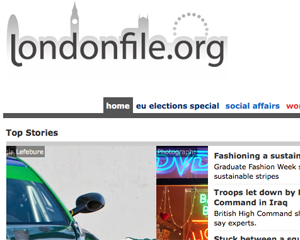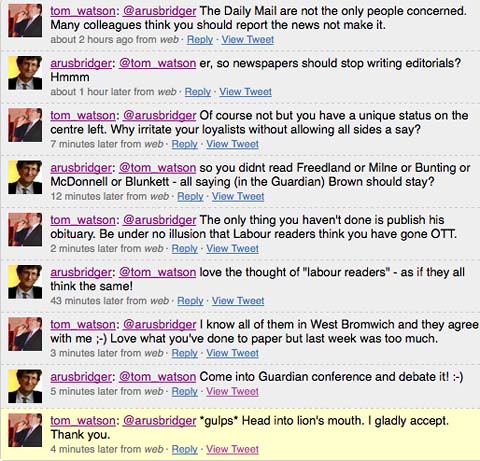In what may feel like a twist of logic too far, there are a growing number of non-media companies who are adopting the Fourth Estate’s digital business model.
That’s the ad-funded, free-to-the-consumer model.
You know the one.
It’s at the root of the crisis afflicting the newspaper industry around the world, an industry which is trying desperately to make money online. Or at least not haemorrhage it.
To believe the unholy trinity that is News International, Daily Mail and General Trust, and the Guardian Media Group, the media model is unworkable, unsustainable and it’s got to go.
The three are not sure if it should be replaced by paywalls, micropayments, subscriptions or something else entirely.
But what they are agreed on is that it cannot be business as usual. Because that business is going under.
So why do we find the likes of Facebook, Digg and the mighty Google – and perhaps soon Amazon– adopting the ad-funded model to support services and software.
Take Gmail. It’s not a media entity, it’s email, but it is ad-supported.
One answer is that that advertising is the last, desperate (and largely) failing attempt to generate some money, given nobody wants to pay for their products. In short: free reigns.
On that latter point, Wired’s editor-in-chief Chris Anderson is likely to agree.
His new book ‘Free: The Future of a Radical Price’ – appropriately available to read and listen to online without charge – celebrates ‘freeconomics’, but has a much more positive take on its effect on the business world.
The reason, he says, people are convinced that ad-funded won’t work is because they are applying the conventional rules.
Offline – in newspapers, magazines, billboards, TV and radio – advertising is predicated on scarcity not abundance. Ad sales people trade on ‘space’ and the less there is the higher the yield.
So when there is infinite space online, their greatest selling tool disappears.
Right? Wrong.
Anderson argues that there is another kind of advertising which is epitomised by Google’s text ads:
“Google doesn’t sell space. It sells users’ intentions – what they’ve declared to be interested in, in the form of a search query.
“And that’s a scarce resource. The number of people typing in ‘Berkeley dry cleaner’ on any given day is finite.”
Google’s CEO Eric Schmidt – admittedly a man with a vested interest – estimates that the potential market for online advertising is $800bn.
“That’s twice the total advertising market, online and off, today,” notes Anderson.
So why is his tone at such odds with that of the media he is writing about?
Perhaps it has something to do with the production-cycle of book publishing. This book was in train before he had even finished writing the much-admired The Long Tail.
Clearly much of his thinking predates the collapse of Lehman Brothers which sealed our current economic fate.
His penultimate chapter, presumably added very late in the day and titled ‘Coda: Free in a Time of Economic Crisis’, is an acknowlegement of that, although not a denunciation of his core argument.
Just maybe, it’s the down-in-the-mouth media owners who are out of time, not Anderson.
Maybe this rush to find other ways to monetise will be a passing phase and when the economy picks up so too will online advertising revenues.
After all, what’s the alternative?
Pay walls may work for niche information but not for mainstream news and exclusives. That’s something that even the Wall Street Journal, poster child of the paid model, accepts.
Interviewed earlier this year its executive editor Alan Murray said:
“Look, if it’s a big news story, if we report a takeover and – we could hold that behind the pay wall. But if we do, BusinessWeek or someone else will simply write a story saying ‘The Wall Street Journal is reporting x’ and they’ll get all the traffic. Why would we do that?
“So if it’s that kind of a big, broad-interest news story, we’ll put it outside the pay wall and go ahead and take the traffic ourselves, thank you very much.”
Jon Bernstein is former multimedia editor of Channel 4 News. This is part of a series of regular columns for Journalism.co.uk. You can read his personal blog at this link.

